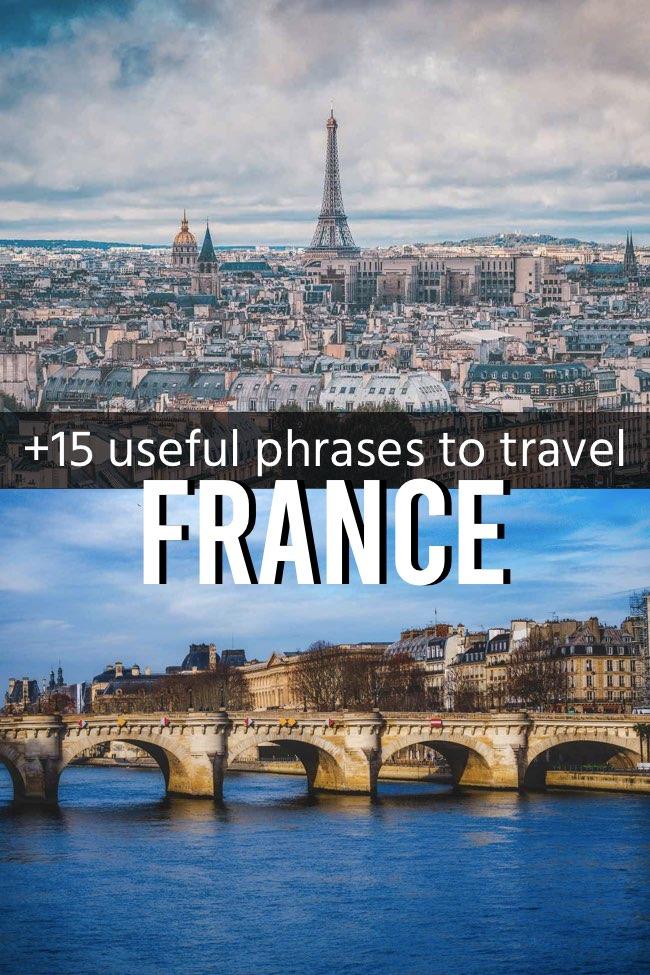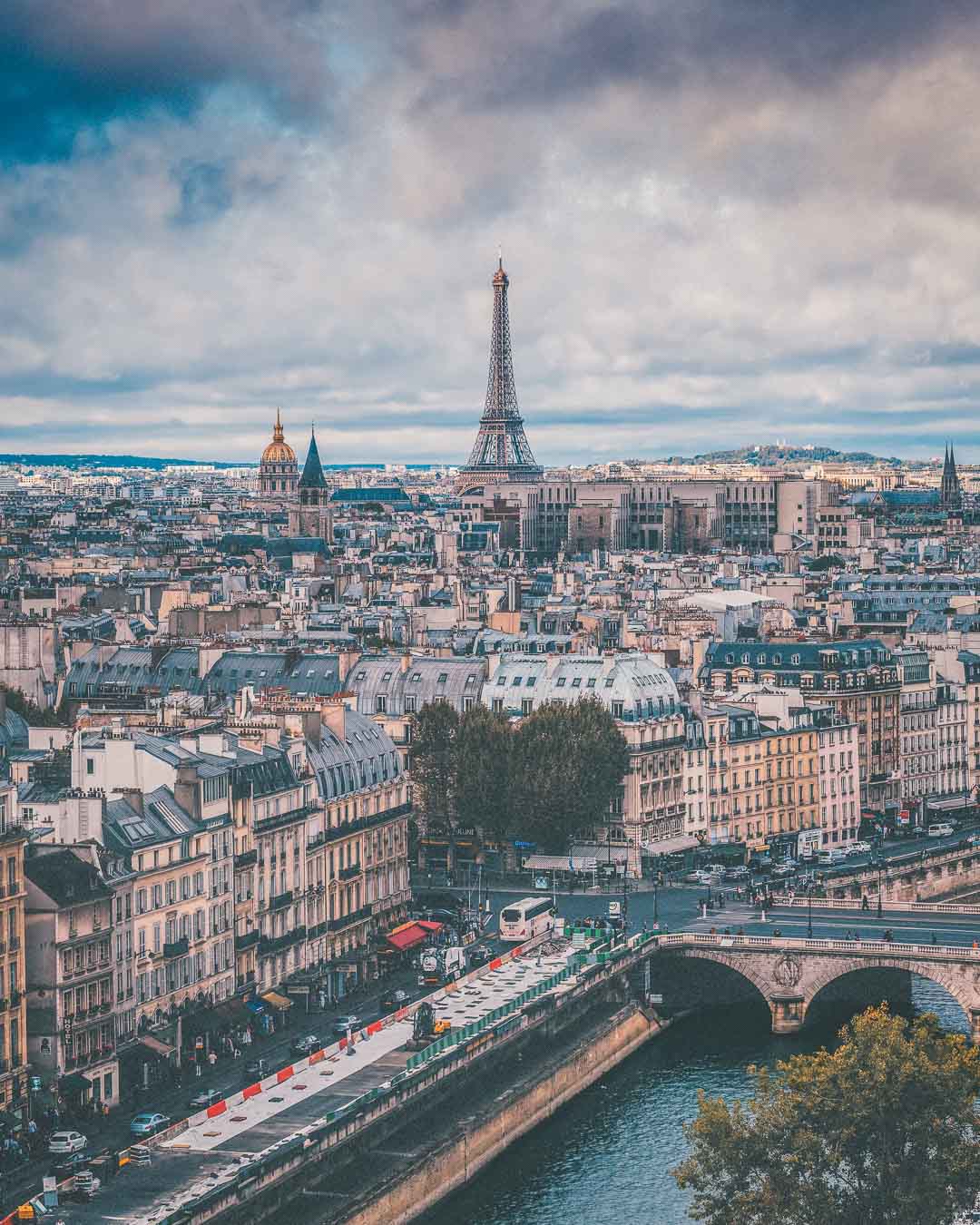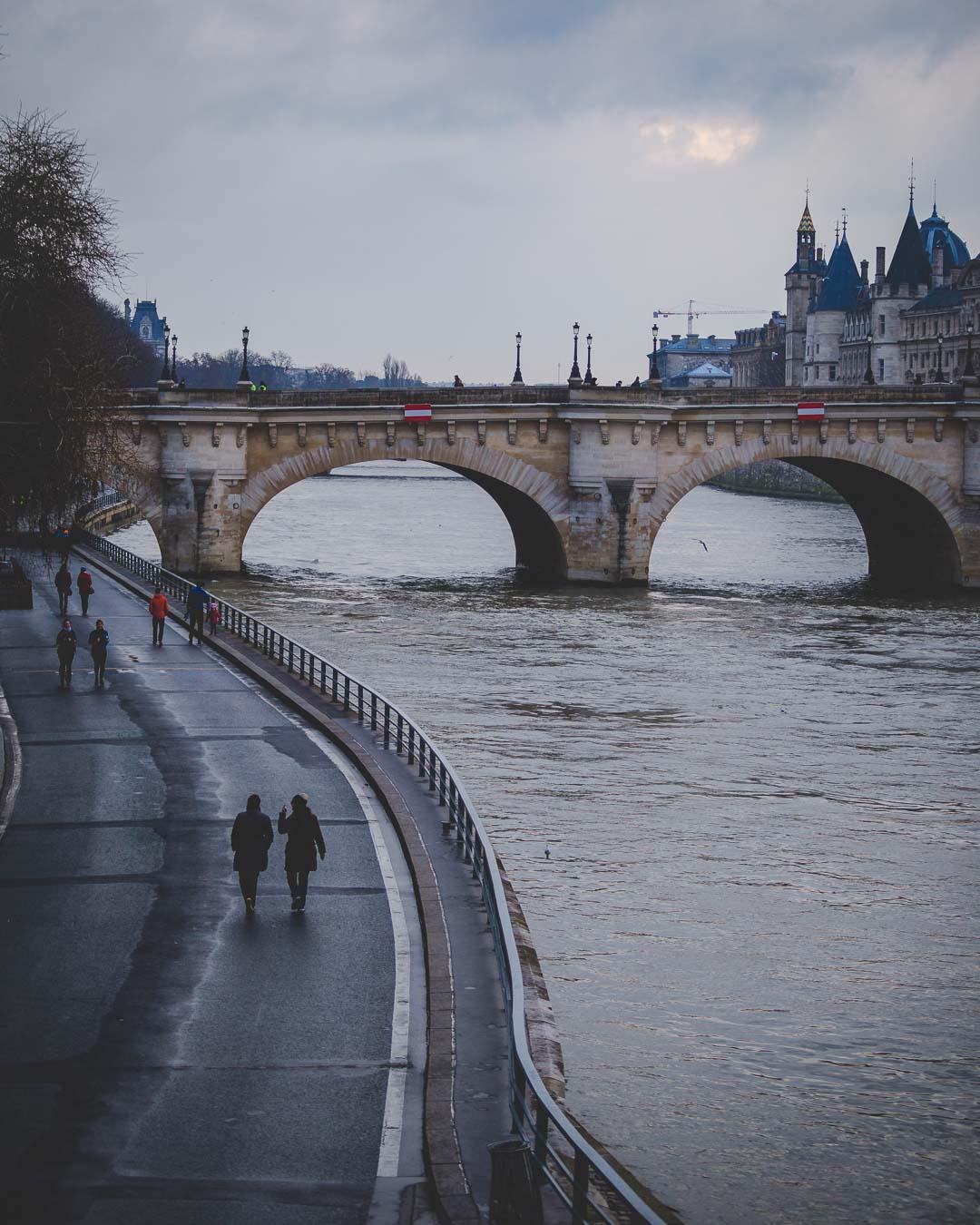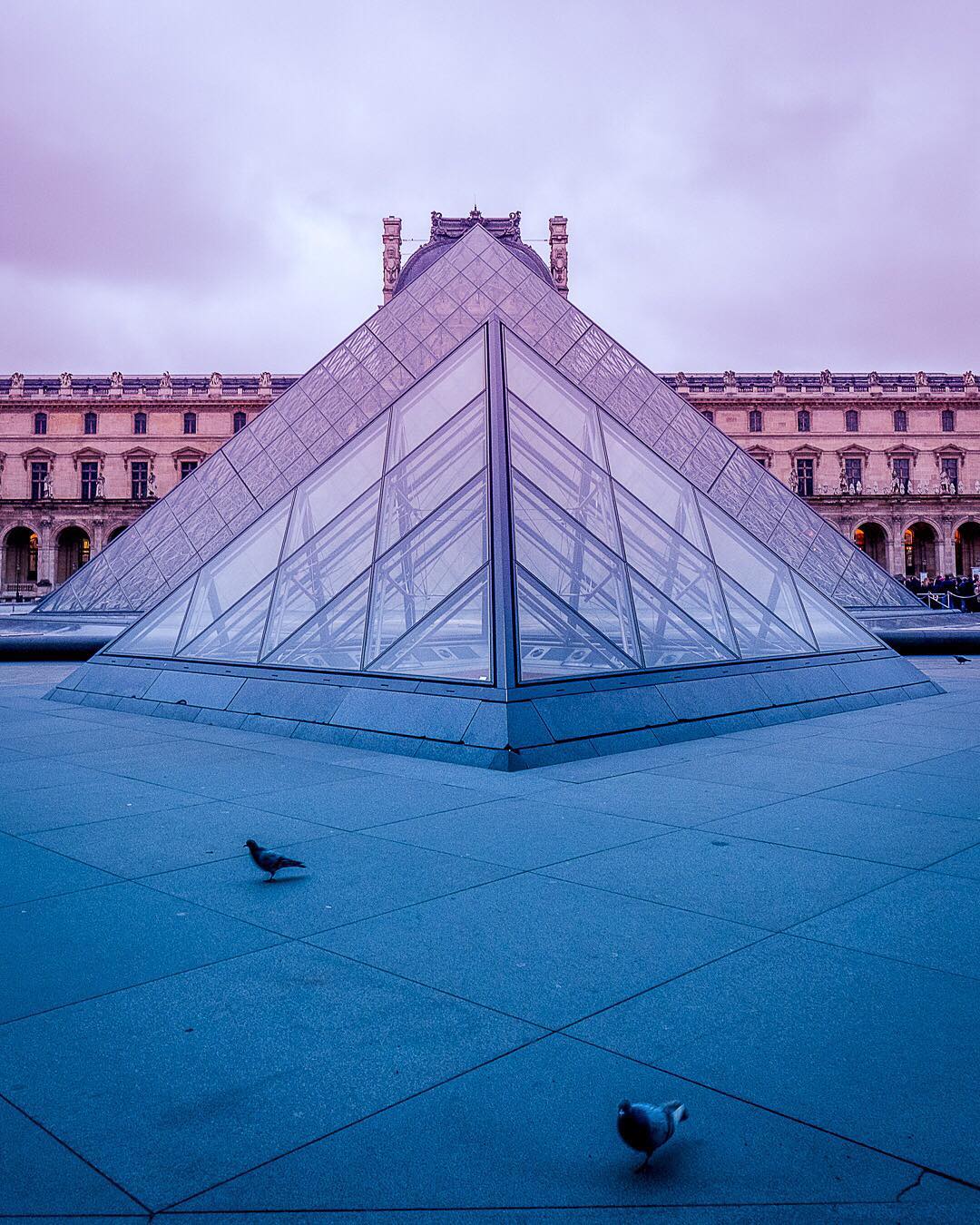How to say “Hello” in French and more useful French phrases to know
You may have heard French people don’t speak English. Well, even if this prejudice is not really true nowadays, there are still some French people that don’t speak a word in English.
To help you go through your trip to France and make a big difference to it, here is the ultimate guide to useful French phrases and French greetings.
Learn how to say “Hello” in French, how to say “Thank you” in French, and more!

It’s always good and courteous to learn a few words in the local language when visiting a country. Anywhere in the world, it makes your trip more comfortable as local people are always nicer to travelers trying to speak their language.
And it’s even more true when going to France! It’s definitely better to get informed before traveling to France.

So, you’re planning to go to France? Maybe planning a Winter Paris trip?
Find out below the most useful French phrases list for travelers and tourists (no worries, French language isn’t that hard!).
French Greetings
Hello in French: Bonjour
To greet someone in France, we say Bonjour which literally means “Good day”. This world is used throughout the day to say “Hello”, as long as the sun shines. It is pronounced “Bon-joo-r” and is used in all kind of situation, formal or informal. There is a lot of ways to say Hello in French, but this one is the most well-known and used.
Good evening in French: Bonsoir
French people use “Bonsoir ” to greet people in the evening. It means “Good evening” and is pronounced “Bon-swa-r”. You will hear this word in all restaurants, hotels and bars after the sun has set. Just before going to bed, you can use “Bonne nuit” which means “Have a good night”.
Goodbye in French: Aurevoir
“Aurevoir” is used to say “Goodbye” in French. It literally means “Until next time” and is used in all kind of situations, all day long. You can use it everywhere, in restaurants, shops, hotels, transportations… It is pronounced “O-re-vwa-r”. French people use “Bye” a lot to say “Goodbye” but it is used in informal situations, with friends and relatives.
Please in French: S’il vous plaît
In France, people say “Please” for any request: asking for a receipt in a restaurant, asking for a baguette in the bakery, asking a stranger for the hour in the street… So you will hear “S’il vous plaît” everywhere, which literally, “S’il vous plaît” means “If it pleases you”. Pronounce it “Sil-voo-play” and use it to start a polite conversation in the street for example: “S’il vous plaît, avez-vous l’heure ?” meaning “Please, could you tell me what time is it”?
Thank you in French: Merci
French people say “Merci” to thank someone. This world is pronounced “Mer-si” and is used the same way we use “Thank you” in English. You can use “Merci” in all places, to anyone who deserves it. If you are really thankful to someone, you can use the stronger version “Merci beaucoup” meaning “Thank you very much”.
Sorry in French: Pardon
In France, people say “Pardon” meaning “Sorry” when bumping into someone or when trying to clear a path in a crowd for example. It can also be used as a question to ask someone to repeat what he was saying: “Pardon?”. It is pronounced as you read it,“Par-don”.

Transportation & Location
Where is in French: Où est…
When you are looking for the Eiffel Tower or a metro station, you use “Where is X? ” in English. Same in French, the formula is quite simple: Où est X ?”. It is pronounced “Oo-a” and you can replace “X” by any location. For example: “Où est la station de métro la plus proche ?” means “Where is the closest metro station?”.
How to go to in French: Comment aller à…
You want to visit the Eiffel Tower, but you don’t know the way to take? No worries, you can ask any French people with this French sentence: “Comment aller à X ?”. As for the “Where is” formula, you can replace the X by any location. Here is the right pronunciation of this very common and useful French phrases:”Com-an al-lay-a”.
Example: comment aller à la Tour Eiffel?
Buy a ticket in French: Acheter un ticket
Now that you know where and how to go to the place you want to visit, it’s time to buy yourself a bus or metro ticket. The right sentence in French to buy a ticket is “Je voudrais acheter un ticket” (“Je-voo-dray ach-tay un tickay”) meaning “I would like to buy a ticket”. This very common French phrase is composed of the formula “Je voudrais X“, which means “I would like to X”. Once again, you can replace X by any verb.
Subway map in French: Carte du métro
You need the subway map to navigate by yourself in Paris? Simply ask the subway ticket seller for a “Carte du metro” (Cart-du-may-tro). In English, you would use the sentence “Could you please give me the subway map?”. In French, people say “Pouvez-vous me donner la carte du métro s’il vous plaît?“. The sentence seems a little bit long, but it’s simple : “Could you” is “Pouvez-vous” (“Poo-vay voo”) in French. Then, you just add “Carte du métro” and the phrase you have learnt before to say “Please”, “S’il vous plaît”.

Restaurant
The menu in French: Le menu
English and French share a lot of worlds. “Menu” is one of them. If you want to see the menu in a restaurant, simply ask the waiter this way : “Le menu s’il vous plaît” meaning “The menu please”. You may think it sounds a bit strange or rude in English but don’t worry, this is the right way to ask politely for the menu. Of course, there is a more French version of this world which is “La carte “. Yes, French people use the same word for “Menu” and “Map”…
I don’t eat in French: Je ne mange pas
You have some restrictions regarding food? You don’t eat meat or have an allergy to nuts? French people use the sentence “Je ne mange pas X” to say “I don’t eat X”. Pronounce it “Je ne man-je pa” and replace X by any food to warn the waiter. Here is a list of the most common things people can’t eat and their translation in French:
- nuts = noix
- peanuts = arachide
- lait = milk
- meat = viande
- pork = porc
- fish = poisson
- shellfish = crustacés
- gluten = gluten
- eggs = oeufs
- vegetarian = végétarien
The restroom in French: Les toilettes
If you are looking for the restroom in a restaurant, you should ask the waiter “Où sont les toilettes s’il vous plaît?” (“Oo- son ley twa-let sil-voo-play”) meaning “Where is the restroom please?”. As you can see, we don’t use “Ou est ?” for “Where is” as we did before, but “Où sont ?”. This is because the French word for “Restroom”, “Toilettes”, is plural so we have to use “Where are”, as we do in English.
The bill in French: L’addition
Now that you have finished your meal, you should pay the bill. French people say “L’addition s’il vous plaît” (“Lah-dee-sy-on, seel voo play”) which means “The bill please”. Here is another example showing that French and English share many words: the French word “Addition” for “Bill” literally means the same English word “Addition”.

Shopping
How much is it in French: Combien ça coûte
You want so badly to buy this Paris magnet but you can’t find the price on it? You can ask the seller “How much is it” with this simple French sentence: “Combien ça coûte ?”. This French phrase is pronounced “Con-byan sah kout” and you can use it everywhere in shops, restaurants, hotels…
I am looking for in French: Je cherche
If you’re looking for a specific item to buy, you should use the French phrase “Je cherche X” and replace X by the item. It means “I am looking for X” and is pronounced “Je cher-che”. To make a full sentence and ask for your item politely, you should say “Excusez-moi, je cherche X”, meaning “Sorry to bother, I am looking for X”.
Example: je cherche Notre-Dame de Paris
Less expensive in French: Moins cher
The seller found the item you need, but it is too expensive? Ask for a less expensive item with this simple French phrase: “Avez-vous quelque chose de moins cher ?”. It means “Do you have something cheaper?” and it is pronounced “Ah-vay voo kel-ke choz de moo-uhn cher”. Be sure, the seller will find something cheaper for you.
A bag in French: Un sac
You have finally found what you need and bought it. If you have nothing to carry it, you can ask the seller for a bag by asking him “Avez-vous un sac?” (“Ah-vay voo unh sak”). Because French shops don’t systematically give bags in order to protect the environment, you might use this sentence a lot. Make sure you know this easy and useful French phrase.
I hope you found all the useful French phrases you need so you can prepare your trip to France at best. Don’t forget to pin this article so you can keep this list with you during the trip!
If you are looking for a specific French expression, don’t hesitate to ask me in the comments below!
Visit France
Planning a trip to Paris or France? You can find below several other articles about this wonderful part of the world to help you plan your trip:
Paris Guides:
Where to see the Sunrise in Paris
La Conciergerie – An Old Prison in Paris
France Guides:
Sillans la Cascade – Amazing Waterfall in the Var Region
Lac Esparron de Verdon – Escape the Crowds in the Gorges du Verdon
Pin this to Pinterest!
Enjoyed this guide? Then help a fellow traveler and pin it! They'll most definitely love you for it, 100% guarantee.
